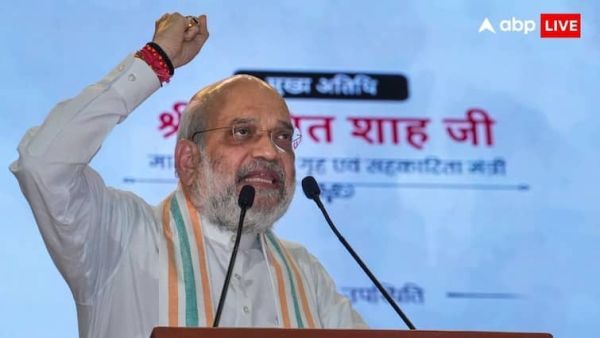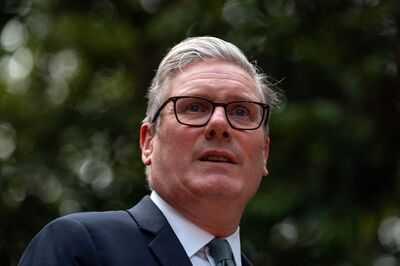
New Delhi [India], July 1 (ANI): Hailing the three new criminal laws as the "biggest reform since independence" that would bring a major transformation to India's criminal justice system, Union Home Minister Amit Shah on Tuesday said, after the full implementation of the new acts across the country, justice would be delivered within three years of filing an FIR.
The Bharatiya Nyaya Sanhita (BNS), the Bharatiya Nagarik Suraksha Sanhita (BNSS) and the Bharatiya Sakshya Adhiniyam (BSA) came into effect on July 1, 2024. The BNS, BNSS, and the BSA replaced the colonial-era Indian Penal Code, the Code of Criminal Procedure, and the Indian Evidence Act of 1872, respectively.
Addressing an event titled 'nyaay prnnaalii meN vishvaas kaa svrnnim vrss' (Golden Year of Faith in Justice System) to mark one year of the enactment of the three new criminal codes, Shah said the new laws are going to "transform" the criminal justice system in the country.
"In a way, these three laws are going to transform the criminal justice system in the days to come...The biggest issue facing our criminal justice system was the lack of a timeline for obtaining justice...I assure all citizens of India that the full implementation of the new laws will be achieved within a maximum of three years, and I can say confidently that after that, anyone can get justice within 3 years of filing an FIR. This will be ensured," he added.
Speaking at the Bharat Mandapam in the national capital, Shah said, "This reform adds to the rights of every citizen. It is the biggest tool for their protection. Making the criminal justice system transparent and accessible is the greatest reform. I believe that it will be considered the biggest reform since independence."
emphasised that their formulation involved extensive consultations and multi-stakeholder engagement.
"In twenty-five months, we will achieve 100% success in this. One hundred and sixty meetings were held at my level alone in the Home Ministry. Inputs were sought from Governors, Chief Ministers, Chief Justices, Bar Councils, and Law Universities. A special committee was formed to examine each section of the draft laws," he said.
Highlighting the major provisions of the laws, the Home Minister stated that an e-register system has been mandated to list all individuals in custody, and such individuals must be produced before a magistrate within 24 hours. "No one will now be able to say their relative has been held in the police station unlawfully. A receipt will be issued upon filing a complaint, and a follow-up report will be provided within 90 days, available even on WhatsApp," he added.
He said that for the first time, crimes against women and children have been dealt with in a separate chapter. "Terrorism has also been defined in the laws, and strong provisions have been made to tackle organised crime," Shah said, noting that provisions for online access to FIRs, FSL reports, video recording of search and seizures, postmortems, and court processes have been included.
The Minister also underscored the extensive use of technology in policing and prosecution. "All police stations are now connected through the CCTNS network. Twenty-two thousand courts are online. ePrison has been implemented in over 1,361 jails, and over 193 million prosecution records are online. Fingerprint data of 114 million individuals is available on NAFIS," the Home Minister said.
He added that data on over 3.6 lakh human traffickers, 13,000 terrorist incidents, and 8 lakh narcotics cases have been digitised. The ministry is now working on AI-based software to analyse and link such data for use at the police station level.
Calling for greater public awareness to ensure smooth implementation, Shah said exhibitions on the new laws would be held in every state in local languages. "Unless the public is aware of their rights, pressure cannot be built on the system. This reform is not just about laws but about empowering citizens," he added.
Commending the Delhi Government for swift and effective implementation of the new laws, Shah said, "I have no hesitation in saying that the Delhi Government has done the best and fastest implementation. The Home Ministry and the Delhi administration worked closely for this."
The event was also attended by Delhi Lieutenant Governor VK Saxena and Chief Minister Rekha Gupta, who also viewed an exhibition put up to mark the one-year milestone of the new laws.
Before concluding his address with a call for national unity and awareness, the Union Home Minister urged people to visit the exhibition on criminal laws and share their selfies on social media to help increase awareness.
(This report has been published as part of the auto-generated syndicate wire feed. Apart from the headline, no editing has been done in the copy by ABP Live.)
-
Arsenal confirm first summer signing for Mikel Arteta as Andrea Berta opens transfer floodgates

-
Keir Starmer's welfare cuts narrowly pass as MPs left furious and authority left shattered

-
Rod Stewart pens emotional 4-word update as tearful Glastonbury fans rush to support him

-
BREAKING: Keir Starmer suffers major rebellion on watered-down DWP benefit cuts

-
BREAKING: Santander agrees £2.65bn TSB takeover sparking job loss and branch closure fears
